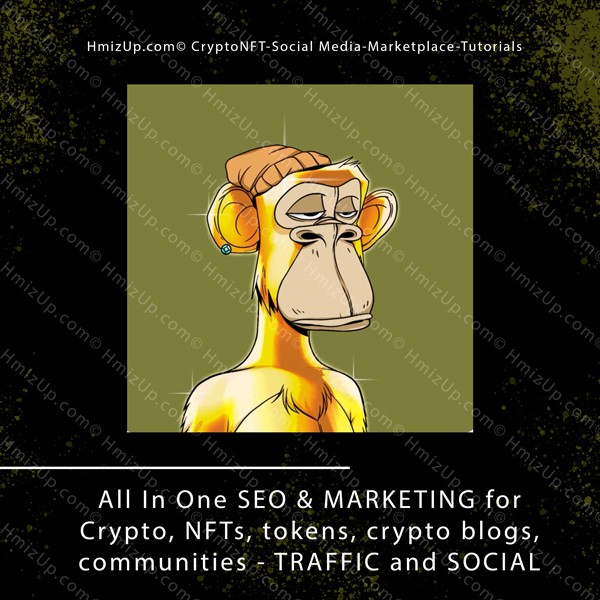“Social Tokens: Building Communities and Monetizing Influence in the Digital Age
Artikel Terkait Social Tokens: Building Communities and Monetizing Influence in the Digital Age
- 1/1 NFTs: The Pinnacle Of Digital Art Ownership
- NFT Trading Volume: A Comprehensive Overview
- The Rise Of DAO-Controlled Worlds: Reshaping Governance And Society
- The Immersive Frontier: Exploring The Potential And Impact Of XR Technology
- Augmented Reality: Bridging The Physical And Digital Worlds
Table of Content
Video tentang Social Tokens: Building Communities and Monetizing Influence in the Digital Age
Social Tokens: Building Communities and Monetizing Influence in the Digital Age

In the ever-evolving landscape of the digital world, where social media reigns supreme and online communities thrive, a new form of digital asset has emerged: social tokens. These tokens, also known as community tokens or creator tokens, represent a fascinating intersection of social networking, blockchain technology, and decentralized finance (DeFi). Social tokens are revolutionizing the way individuals and communities interact, collaborate, and monetize their influence online.
Understanding Social Tokens
At their core, social tokens are digital assets that represent a specific individual, brand, or community. They are typically built on blockchain platforms like Ethereum and are designed to foster engagement, reward participation, and create a sense of ownership within a community. Unlike traditional cryptocurrencies like Bitcoin or Ethereum, which are designed to be decentralized and independent of any single entity, social tokens are intrinsically linked to the reputation, influence, and activities of their creators or communities.
Key Features of Social Tokens:
-
Community Ownership: Social tokens empower community members by giving them a stake in the success of the community. Token holders often have a say in community decisions, access to exclusive content, and the ability to participate in governance.
-
Incentivized Engagement: Social tokens can be used to reward community members for their contributions, such as creating content, participating in discussions, or referring new members. This incentivizes active participation and fosters a sense of belonging.

-
Monetization of Influence: Social tokens allow creators and influencers to monetize their influence directly by offering exclusive access, content, or experiences to token holders. This creates a more direct and transparent relationship between creators and their fans.

Decentralized Governance: Social tokens can be used to implement decentralized governance mechanisms, allowing community members to vote on proposals, allocate resources, and shape the direction of the community.
-
Enhanced Networking: Social tokens can facilitate networking and collaboration within a community by providing a common currency and a shared sense of identity.

The Rise of Social Tokens
The concept of social tokens is not entirely new. For years, online communities have experimented with various forms of virtual currency and reward systems. However, the advent of blockchain technology and DeFi has provided a powerful infrastructure for creating and managing social tokens in a secure, transparent, and decentralized manner.
Several factors have contributed to the recent surge in popularity of social tokens:
-
Growing Creator Economy: The rise of the creator economy, where individuals can earn a living by creating content and building online audiences, has created a demand for new tools and platforms that empower creators to monetize their influence.
-
Increasing Community Engagement: As online communities become more prevalent and sophisticated, there is a growing need for tools that can foster engagement, reward participation, and create a sense of ownership.
-
Advancements in Blockchain Technology: The development of user-friendly blockchain platforms and DeFi protocols has made it easier for individuals and communities to create and manage social tokens.
-
Decentralized Finance (DeFi) Revolution: The DeFi movement has demonstrated the potential of blockchain technology to disrupt traditional financial systems and create new opportunities for financial inclusion and innovation.
Examples of Social Tokens
Numerous social tokens have emerged in recent years, each with its unique purpose and community. Here are a few notable examples:
-
Rally: Rally is a platform that allows creators to launch their own social tokens and build sustainable economies around their communities. Creators can use Rally to reward fans, offer exclusive content, and create unique experiences.
-
রোল (Roll): Roll is a platform that enables anyone to create, distribute, and manage their own social tokens. Roll provides tools for token minting, distribution, and community management.
-
Whales: WHALE is a social token that represents a community of non-fungible token (NFT) collectors and enthusiasts. WHALE holders gain access to exclusive events, content, and opportunities within the NFT space.
-
Friends With Benefits (FWB): FWB is a decentralized autonomous organization (DAO) that uses a social token to gate access to its community. FWB members gain access to exclusive events, discussions, and networking opportunities.
-
Seed Club: Seed Club is a DAO that invests in and supports early-stage social token projects. Seed Club provides mentorship, funding, and resources to help social token projects succeed.
Benefits of Social Tokens
Social tokens offer a wide range of benefits for creators, communities, and token holders:
-
For Creators:
- Direct Monetization: Social tokens allow creators to monetize their influence directly, without relying on intermediaries or advertising revenue.
- Enhanced Fan Engagement: Social tokens foster a deeper connection between creators and their fans by incentivizing engagement and rewarding participation.
- Community Building: Social tokens help creators build stronger and more engaged communities around their work.
- Creative Freedom: Social tokens give creators more control over their content and community, allowing them to experiment with new ideas and business models.
-
For Communities:
- Increased Participation: Social tokens incentivize community members to participate actively and contribute to the community’s success.
- Shared Ownership: Social tokens give community members a sense of ownership and belonging, fostering a stronger sense of community.
- Decentralized Governance: Social tokens enable decentralized governance, allowing community members to shape the direction of the community.
- Enhanced Networking: Social tokens facilitate networking and collaboration within the community by providing a common currency and a shared sense of identity.
-
For Token Holders:
- Access to Exclusive Content: Social tokens can grant access to exclusive content, events, and experiences.
- Community Participation: Social tokens allow token holders to participate in community decisions and shape the direction of the community.
- Potential Financial Upside: Social tokens can appreciate in value as the community grows and becomes more successful.
- Networking Opportunities: Social tokens provide opportunities to connect with like-minded individuals and build valuable relationships.
Challenges and Risks of Social Tokens
While social tokens offer numerous benefits, they also come with certain challenges and risks:
-
Regulatory Uncertainty: The regulatory landscape for social tokens is still evolving, and there is a risk that new regulations could negatively impact the market.
-
Security Risks: Social tokens are vulnerable to hacking and theft, just like any other cryptocurrency.
-
Volatility: The value of social tokens can be highly volatile, and there is a risk of losing money.
-
Community Management: Managing a social token community requires significant effort and expertise.
-
Token Utility: The success of a social token depends on its utility and the value it provides to token holders.
The Future of Social Tokens
Social tokens are still in their early stages of development, but they have the potential to revolutionize the way individuals and communities interact, collaborate, and monetize their influence online. As the creator economy continues to grow and blockchain technology becomes more accessible, we can expect to see more innovative and impactful applications of social tokens in the years to come.
Some potential future developments in the social token space include:
-
Integration with Social Media Platforms: Social tokens could be integrated directly into social media platforms, allowing users to earn and spend tokens within their favorite social networks.
-
Decentralized Autonomous Organizations (DAOs): Social tokens could be used to power DAOs, enabling decentralized governance and community-led decision-making.
-
Non-Fungible Tokens (NFTs): Social tokens could be combined with NFTs to create unique and valuable digital assets that represent ownership and membership in a community.
-
Micro-Economies: Social tokens could be used to create micro-economies within communities, allowing members to earn and spend tokens for goods and services.
-
Personal Branding: Individuals could use social tokens to build their personal brand and monetize their expertise.
Conclusion
Social tokens represent a paradigm shift in the way we think about online communities and the creator economy. By empowering individuals and communities to monetize their influence, reward participation, and build stronger connections, social tokens are paving the way for a more decentralized, equitable, and engaging digital future. While challenges and risks remain, the potential benefits of social tokens are undeniable, and they are poised to play a significant role in shaping the future of the internet.
